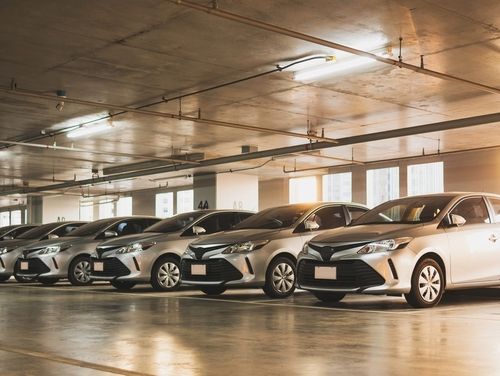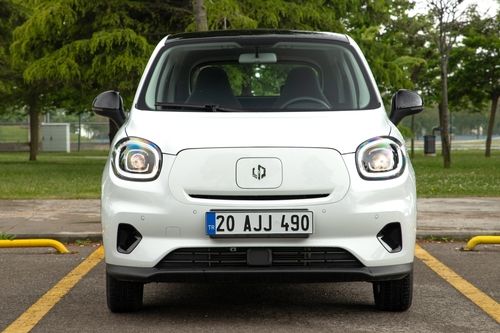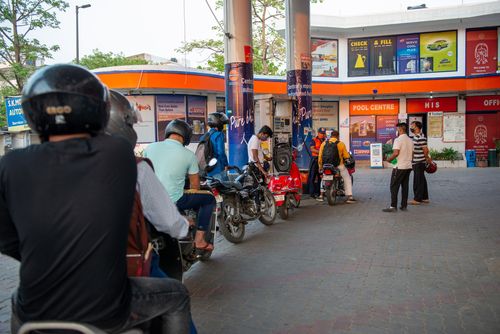Third-Party Vs Comprehensive Motor Insurance: Which One Should You Choose?
Written by Upstox Desk
Published on May 27, 2025 | 6 min read

Rani has always dreamed of owning a German luxury car. Professionally, she is an event organiser, which requires her to travel extensively. Before attending her next event, she had the opportunity to purchase a second-hand luxury car, which was also her first vehicle. She received two insurance coverage options from the seller. One was third-party liability insurance, and the other was comprehensive insurance. Unfamiliar with their advantages, she asked the insurance provider to explain their pros and cons in detail to her. As she has a tight professional schedule, she eventually chose the comprehensive insurance option to safeguard her new brand car and to secure her peace of mind. Rani is now driving her new car confidently and hassle-free, attending consecutive events with a tension-free mindset.
Failing to obtain motor insurance is not only risky, but it is also illegal. However, with the right motor insurance, you can protect yourself from financial mishaps while recovering damages from an accident.
In India, you are legally required to have third-party motor insurance. However, is it sufficient? You can gain additional benefits from a comprehensive policy that goes beyond the bare minimum. It provides a wider safety net for your finances.
This blog will explain the difference between the two, most importantly, helping you understand which one to choose. Additionally, you will receive tips on selecting the best option, as well as the pros and cons of each insurance choice
What is Third-Party Motor Insurance?
According to the Motor Vehicles Act of 1988, third-party motor insurance is essential in India. In third-party insurance, the insurer provides financial aid to the third parties involved in an accident involving your vehicle. Let us understand how.
This type of car insurance covers legal and financial liabilities resulting from an accident, including injury or death, and property damage to a third party. However, it does not cover theft, fire, or damage to your property sustained during the incident.
Third-party coverage is typically designed for older cars, individuals with limited budgets, or those with low vehicle usage. In other words, if you aren't concerned about your vehicle repairs, it is critical that you have at least this kind of coverage.
What Is Comprehensive Motor Insurance?
Let us understand more about comprehensive motor insurance for whom it is best suited:
| Category | Details |
|---|---|
| What It Is | An optional, all-inclusive policy that covers both third-party liabilities and own vehicle damages. |
| What It Covers | Third-party liabilities (injury, property damage); own damage from accidents, fire, theft, and natural disasters; add-ons like zero depreciation, engine protection, and roadside assistance. |
| Premiums | Higher than third-party insurance but justifiable due to wider coverage and customisation options. |
| Ideal For | New or high-value car owners; people in high-traffic or theft-prone areas; those willing to pay more for peace of mind. |
| Key Benefits | Extensive coverage; customisable add-ons; financial protection in high-risk situations. |
Side-by-Side Comparison Table
| Feature | Third-Party Insurance | Comprehensive Insurance |
|---|---|---|
| Legal Requirement | Mandatory | Optional |
| Covers Own Damage | No | Yes |
| Covers Third-Party | Yes | Yes |
| Add-ons Available | No | Yes |
| Premium Cost | Low | Higher |
| Ideal For | Basic legal compliance | Complete protection |
Pros And Cons Of Each
Like any insurance, both can offer advantages to the policyholder, along with some drawbacks.
| Aspect | Pros | Cons |
|---|---|---|
| Third-Party Insurance | - Lower premium, affordable - Legally mandatory in India - Ideal for low-value or older vehicles | - No coverage for your vehicle - No add-ons or customisation options |
| Comprehensive Insurance | - Covers both third-party and own damage - Allows add-ons (zero dep, engine cover, etc.) - Best for new or high-value cars, long-term use | - Higher premium - May be unnecessary for very old vehicles |
How To Choose The Right One For You
Here is how you can choose the right motor insurance based on different factors:
Expert Tip: When Should You Upgrade To Comprehensive?
Choosing the right car can be overwhelming due to the vast number of options available on the market. Additionally, your budget and driving history can influence your selection process. Here are some tips that can help you decide why you should upgrade your plan to comprehensive insurance:
-
For new car owners, the comprehensive plan is ideal. It provides customised add-ons and gives coverage for their vehicle.
-
Especially beneficial during monsoons or in urban traffic, to avoid financial turmoil.
-
If you’re opting for EMIs or loans, lenders may insist on it.
Conclusion
If you understand in depth, the third-party insurance plan is the legal minimum, and comprehensive coverage is for peace of mind. They both have their own benefits and drawbacks, but choosing the right one depends on your preferences.
Always remember to evaluate your needs; you must not overpay for what you don’t need, but also avoid under-protecting yourself. Pre-assessment can ensure you get the benefits of insurance based on your age, driving history, and budget.
Tip: Compare insurance plans online, utilise premium calculators, and read policy documents thoroughly before making a purchase. A little research can save you a lot in the long run.
FAQs
-
Can I switch from a third-party to a comprehensive policy mid-policy?
Yes, you can upgrade during renewal or even mid-policy, subject to certain conditions. Please contact your insurer for the specific process.
-
Are comprehensive insurance premiums negotiable?
Premiums are based on various factors, but you can often get better rates by comparing quotes online or bundling with other policies.
-
Is it mandatory to renew motor insurance annually?
Yes, policies must be renewed on time. Some insurers offer long-term policies up to 3 years for added convenience.
-
What happens if I don’t have any insurance?
You’ll face legal penalties, fines, and even possible imprisonment. Plus, you’ll bear all accident costs yourself.
About Author
Upstox Desk
Upstox Desk
Team of expert writers dedicated to providing insightful and comprehensive coverage on stock markets, economic trends, commodities, business developments, and personal finance. With a passion for delivering valuable information, the team strives to keep readers informed about the latest trends and developments in the financial world.
Read more from UpstoxUpstox is a leading Indian financial services company that offers online trading and investment services in stocks, commodities, currencies, mutual funds, and more. Founded in 2009 and headquartered in Mumbai, Upstox is backed by prominent investors including Ratan Tata, Tiger Global, and Kalaari Capital. It operates under RKSV Securities and is registered with SEBI, NSE, BSE, and other regulatory bodies, ensuring secure and compliant trading experiences.

























